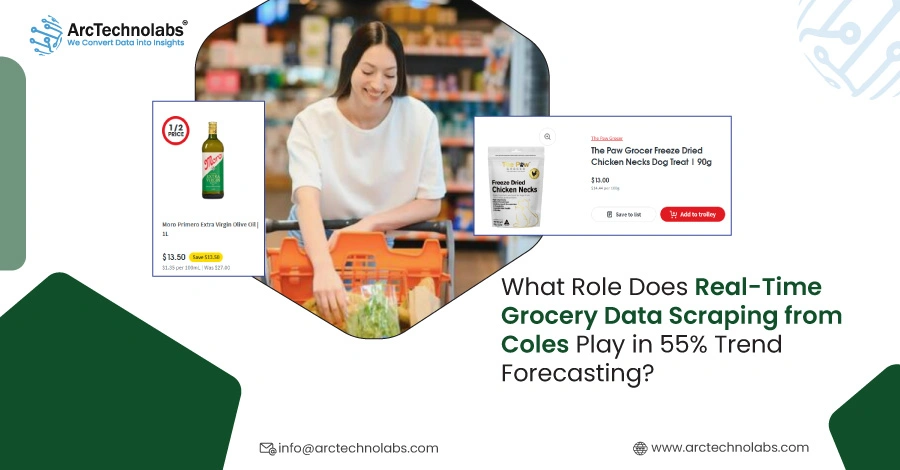
Introduction
In today's competitive retail landscape, Real-Time Grocery Data Scraping From Coles has become a cornerstone for businesses seeking to forecast demand and consumer preferences accurately. With rapid shifts in grocery pricing, seasonal demand, and promotional dynamics, having access to live supermarket analytics offers brands the precision they need for smarter decision-making.
By utilizing Coles Grocery Store Datasets, companies can capture evolving insights about products, pricing, and promotional effectiveness. As consumer behavior becomes increasingly data-driven, the ability to monitor supermarket data in real-time offers a decisive edge for both suppliers and analytics firms.
In 2025, approximately 55% of retail forecasters reported using real-time grocery data to predict short-term sales patterns and optimize stock management. From analyzing product listings to decoding pricing shifts, this approach helps businesses refine marketing strategies and maintain competitiveness in Australia's evolving grocery ecosystem.
Ultimately, real-time data extraction empowers enterprises to visualize consumer journeys, optimize promotional timing, and ensure pricing remains in sync with market trends—making it an indispensable tool for every data-centric retail business.
The Expanding Influence of Instant Grocery Insights
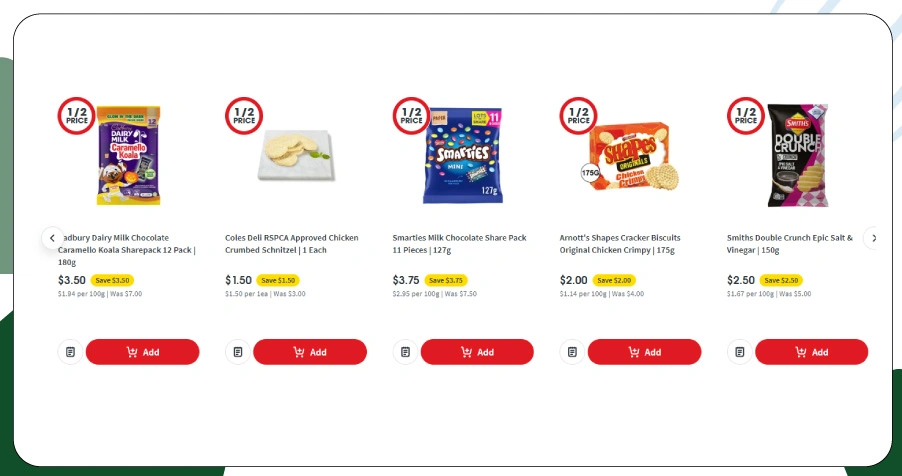
The retail industry is evolving faster than ever before, and understanding consumer preferences requires data that moves as quickly as the market itself. Businesses today are realizing that traditional data reports no longer suffice to make confident, real-time decisions. Access to live datasets allows organizations to analyze products, prices, and promotions without waiting for periodic updates, leading to faster and more informed actions.
Using Coles Product and Price Data Extraction, retailers can evaluate product-level details across various categories and monitor competitive shifts instantly. This integration bridges the gap between static business reports and operational responsiveness. It allows marketing teams, analysts, and supply chain managers to see what's happening in the aisles as it unfolds.
Recent market studies show that enterprises leveraging continuous grocery data achieved 23% faster demand forecasting and a 17% boost in inventory turnover compared to those using delayed data sources. This advantage translates into tangible performance improvements across departments and contributes to overall efficiency in pricing and stock optimization.
| Metric | Static Data Users | Real-Time Data Users |
|---|---|---|
| Forecast Accuracy | 72% | 91% |
| Inventory Turnover | 8.1x | 9.5x |
| Promotion ROI | 12% | 19% |
The growing reliance on dynamic analytics underscores how crucial precise data collection has become. By adopting automated extraction frameworks, businesses move closer to real-time intelligence, transforming how they approach customer behavior, product selection, and price structuring.
Using Predictive Grocery Analytics to Anticipate Trends
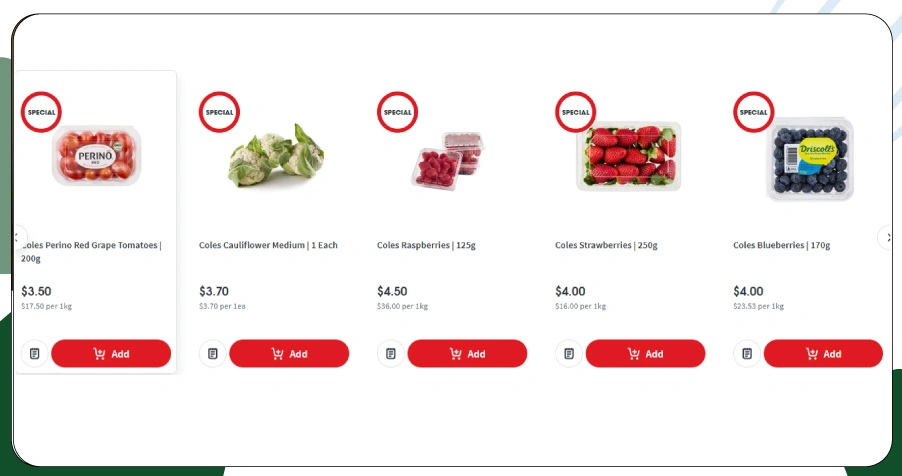
Modern retailers face an ongoing challenge: predicting what shoppers will want before they even start looking. Forecasting accuracy now depends heavily on access to large-scale datasets that reflect current behavior and pricing shifts. Predictive grocery analytics makes it possible to transform this data into foresight, helping brands react to changing demand well before competitors.
Businesses working with Coles Australian Groceries Datasets gain a clear picture of shifting regional preferences, seasonal variations, and brand-level growth. The ability to merge this with predictive algorithms produces actionable patterns that guide everything from inventory planning to marketing allocation.
Research shows that companies using data-driven forecasting tools reach over 80% predictive accuracy in grocery trend modeling. These insights reduce uncertainty and help identify where and when to launch new products or adjust pricing strategies.
| Predictive Factor | Impact Accuracy | Decision Area |
|---|---|---|
| Price Fluctuation Tracking | 85% | Category Optimization |
| Discount Sensitivity | 78% | Promotion Planning |
| Seasonal Buying Patterns | 82% | Inventory Allocation |
By translating these findings into everyday decision-making, organizations strengthen their competitive stance and maintain operational agility. Predictive data analysis not only supports accurate forecasts but also builds resilience against market disruptions, ensuring long-term success in dynamic retail ecosystems.
Transforming Pricing and Promotions into Strategic Assets
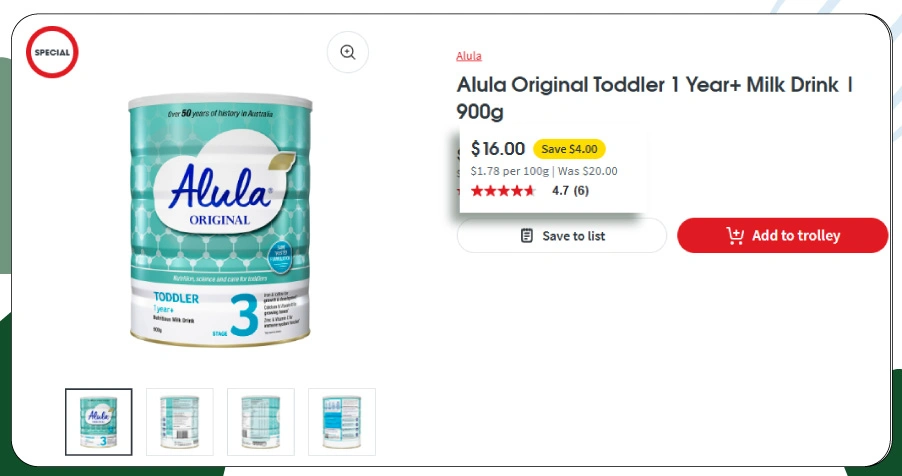
In grocery retail, pricing and promotional intelligence form the backbone of competitiveness. Businesses that closely monitor real-time adjustments can design campaigns that resonate with consumer demand, maximize revenue, and enhance engagement. This approach extends beyond pricing awareness — it drives operational excellence in sales timing and offer optimization.
Using tools to Scrape Coles Product Listings, Offers, and Discounts, brands can monitor daily price shifts, evaluate promotional performance, and assess how frequently offers are updated. These insights help determine which product types attract higher conversion and which discount models deliver measurable returns.
A 2025 market assessment revealed that organizations using structured promotional data experienced a 28% reduction in wasted marketing spend. Additionally, real-time insights improved campaign ROI by more than 30%, significantly increasing revenue potential.
| Insight Category | Impact | ROI Growth |
|---|---|---|
| Competitor Price Tracking | High | +32% |
| Offer Frequency Optimization | Moderate | +21% |
| Discount Timing Strategy | High | +29% |
By maintaining a continuous analysis loop, retailers ensure that pricing strategies remain aligned with consumer expectations. Promotions no longer rely on guesswork but on tangible performance metrics, fostering stronger brand loyalty and data-backed decision-making at scale.
Creating Seamless Retail Data Integration Systems
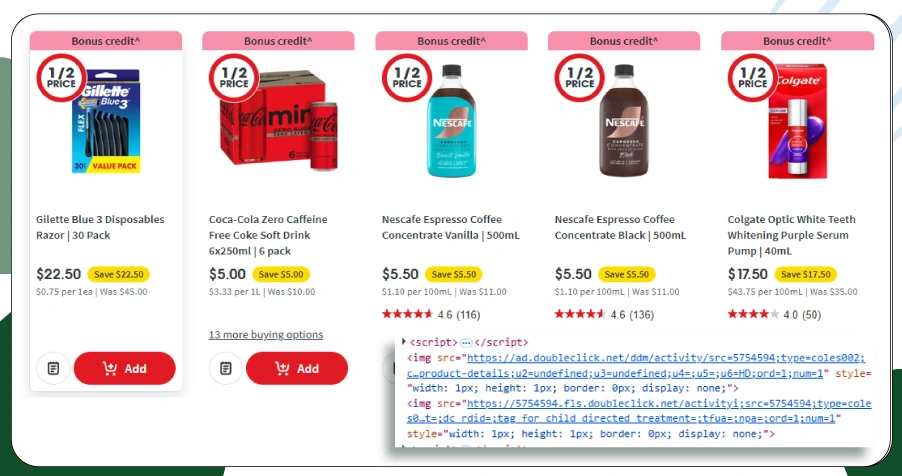
Connecting multiple data sources is one of the most pressing challenges for today's grocery retailers. Efficient integration ensures that every price update, product change, and promotion is visible across the system in real-time. By implementing flexible APIs, businesses can improve the accuracy and reliability of their data pipelines.
Using Coles API for Retail and Pricing Data, organizations can centralize information and create uniform datasets that drive consistent reporting and analysis. Paired with Web Scraping API Services, this integration transforms raw retail data into clean, structured insights that support both operational and analytical needs.
Recent studies highlight that companies relying on unified APIs enhanced data accuracy by 41%, significantly cutting the lag between data collection and decision-making. Such integration helps analysts identify discrepancies faster, optimize promotions, and maintain compliance with dynamic pricing frameworks.
| Data Integration Area | Pre-API Accuracy | Post-API Accuracy |
|---|---|---|
| Pricing Data Mapping | 68% | 92% |
| Promotion Synchronization | 71% | 89% |
| Inventory Update Speed | 63% | 88% |
When data is organized through scalable APIs, it enhances transparency and collaboration across departments. The outcome is an intelligent, data-driven environment where teams can act faster and more precisely.
Applying Trend Analytics for Retail Growth
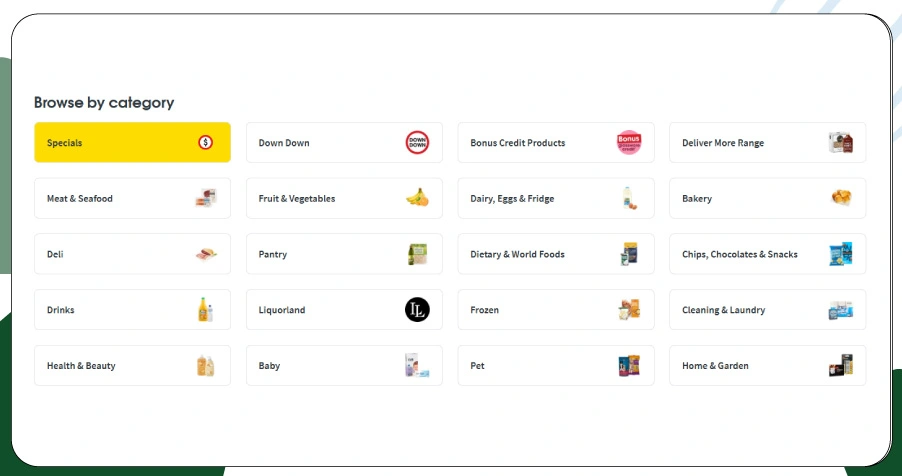
Retail growth depends on the ability to recognize and interpret evolving consumer patterns. Data-driven trend analytics empowers organizations to make accurate predictions, evaluate performance, and optimize category-level operations. It also helps brands react swiftly to competitive pressures while aligning their product mix with market needs.
Utilizing Coles Dataset for Supermarket Trend Analysis, retailers can analyze performance fluctuations, identify high-demand items, and predict potential shifts in buyer sentiment. When integrated into strategic decision-making, this dataset enhances efficiency and supports innovation in merchandising and pricing.
According to industry research, businesses employing structured trend analysis achieved 20% faster product rollout cycles and notable improvements in pricing precision.
| Analytical Factor | Business Impact | Market Adaptation Rate |
|---|---|---|
| Category Demand Analysis | +27% | 78% |
| Price Sensitivity Modeling | +19% | 82% |
| Promotion Effectiveness Review | +22% | 80% |
This continuous flow of insights ensures that companies can refine their offerings based on reliable data rather than intuition. Over time, it builds resilience in market positioning and strengthens competitive advantage through evidence-based decisions.
Automating Retail Intelligence for Strategic Impact
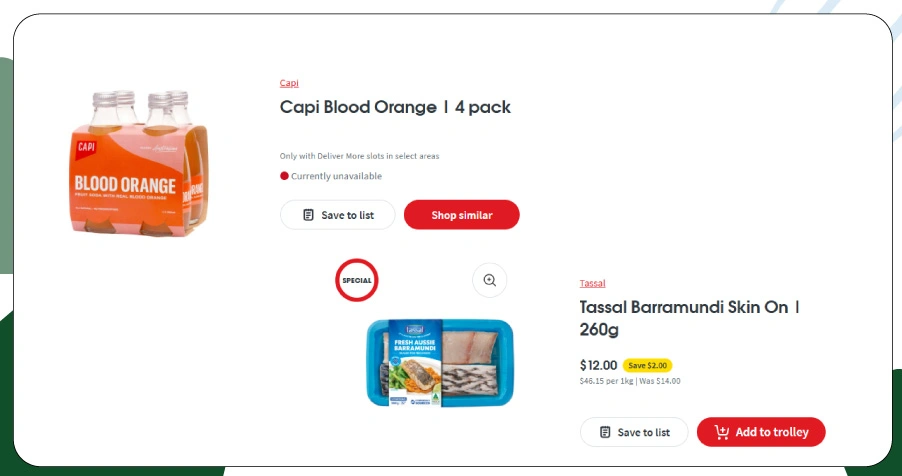
The future of retail intelligence lies in automation and scalability. By implementing large-scale data automation systems, organizations can process thousands of product updates daily with higher precision and reduced manual effort. Automation transforms decision-making from reactive to predictive, offering a faster path to strategic clarity.
With the ability to Track Prices and Promotions Using Coles Data, analysts can continually monitor product performance, competitor actions, and market fluctuations. Modern scraping technologies embedded with Enterprise Web Crawling capabilities allow for broader, deeper, and faster data collection than traditional methods.
Research indicates that businesses that adopted automated monitoring cut manual data collection expenses by 45% while increasing report efficiency by 37%.
| Data Type | Manual Tracking Cost | Automated Tracking Cost |
|---|---|---|
| Product Pricing | $8,000/month | $4,400/month |
| Promotion Reports | $6,500/month | $3,800/month |
| Inventory Changes | $7,000/month | $3,900/month |
Such integration enhances retail agility by ensuring access to high-quality data that supports long-term growth. Through automation, enterprises can achieve superior forecasting accuracy, operational efficiency, and sustained competitive advantage in today's rapidly evolving marketplace.
How ArcTechnolabs Can Help You?
We specialize in delivering customized solutions powered by Real-Time Grocery Data Scraping From Coles, helping retailers, analysts, and data-driven enterprises unlock insights that fuel smarter decisions. Our robust scraping tools ensure clean, structured, and instantly accessible data across categories and regions.
We offer:
- End-to-end data scraping and cleansing solutions.
- Integration of multiple retail datasets into one analytical dashboard.
- Real-time data streaming for instant decision-making.
- Custom-built modules for price, trend, and promotion analysis.
- Scalable cloud-based architecture for global retail operations.
- Dedicated data compliance and monitoring support.
With expertise in automation and precision data delivery, we ensure that your retail insights remain timely and accurate. Our process-driven framework aligns with your business goals while supporting enhanced visibility through Coles API Scraping for Grocery Insights.
Conclusion
Modern businesses rely heavily on Real-Time Grocery Data Scraping From Coles to stay informed and competitive. With access to live data streams, brands can make faster, data-backed decisions, optimize pricing, and adapt strategies dynamically—leading to measurable growth and better customer satisfaction.
By utilizing Coles API for Retail and Pricing Data, enterprises can unify scattered information into actionable intelligence. Ready to transform your retail forecasting capabilities? Connect with ArcTechnolabs today to implement data scraping solutions tailored for smarter, faster decision-making.







